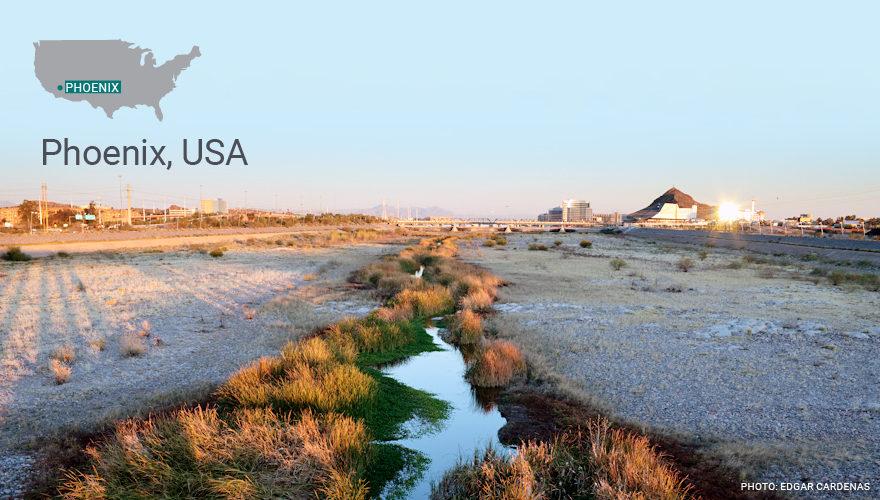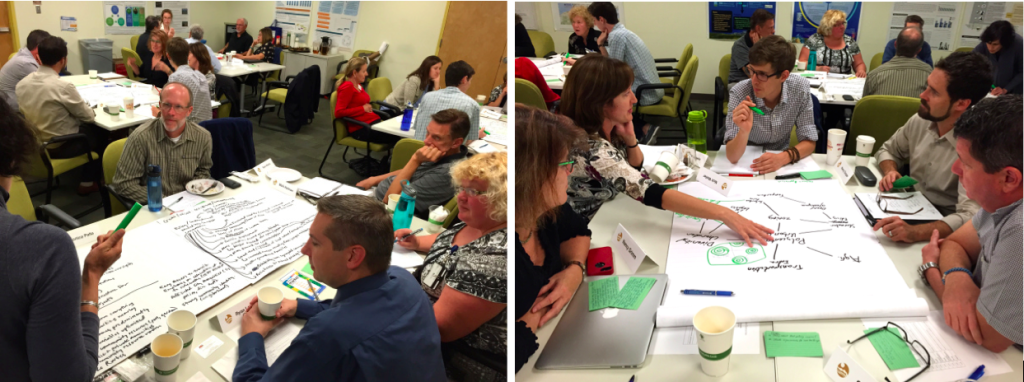The P-FUTURES project aims to bring phosphorus sustainability into focus along with other important Phoenix priorities including water management, the urban heat island effect, and employment opportunities. Linking and coordinating with the Central Arizona-Phoenix Long-Term Ecological Research project enabled synergies to be identified.

Local research partner: Julie Anne Wrigley Global Institute for Sustainability, Arizona State University
Key contact: Dr David Iwaniec David.Iwaniec@asu.edu
The greater Phoenix area currently recycles significant amounts of phosphorus through the reuse of wastewater, manure, and biosolids. However, this is not because the city is currently emphasizing phosphorus recycling. Indirect market forces and concerns about water scarcity have allowed for high phosphorus recycling in local agriculture. Drops in cotton prices and increases in milk prices, created a situation where it was easy to reuse phosphorus from dairy cattle on to alfalfa crops (planned instead of cotton to support milk production). In addition, Phoenix relies on water resources from outside the state so it is concerned with water availability and thus reuse. Having crops, animals, and people in close proximity allows crops to be watered and fertilized through recycling. If market forces or water accessibility conditions were to change, phosphorus recycling could disappear as quickly as it appeared. Current serendipitous recycling does however give a positive glimpse into what could be done if municipalities decide to purposefully manage phosphorus (see here for more information).


